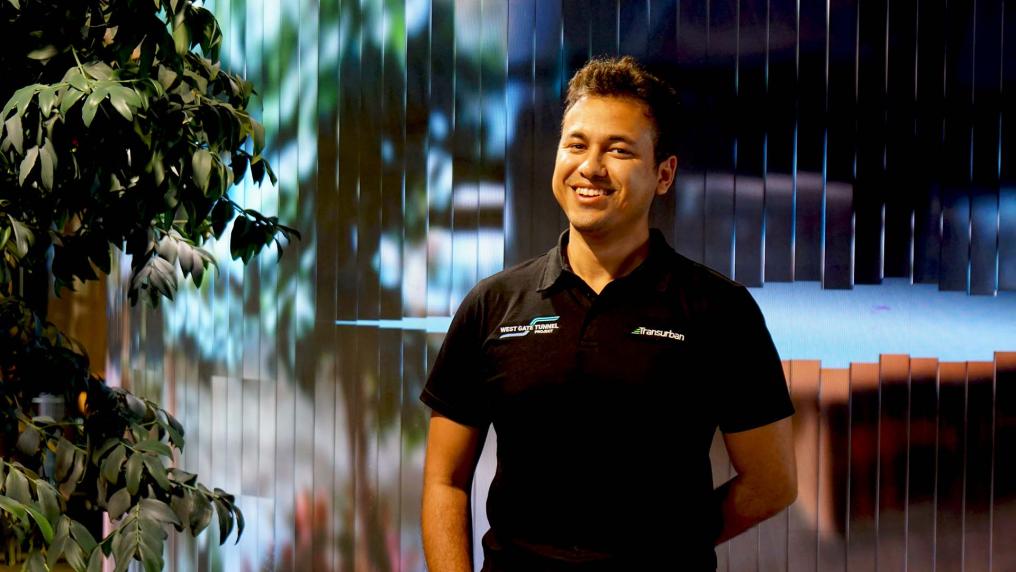A day in the life of a civil engineer
Do you love solving problems, have a flair for maths and science, and want to play a role in constructing the future?
Civil engineering could be a great career for you – and it's one of the most in-demand jobs in Australia right now.
So what does a civil engineer actually do, and how do you become one? Victoria University (VU) alum Prateek Shrestha, now a graduate engineer at Transurban, shares his story and tips for success.
What does a civil engineer do?
Civil engineers are responsible for designing, building and maintaining the infrastructure that forms the foundation of our society, including buildings, roads, bridges and water systems.
“It’s a diverse and rewarding field, with opportunities to work on a variety of projects that have an impact on people’s daily lives,” Prateek says.
“Becoming part of a legacy that people will be utilising for the next 100 years is inspiring to me.”
Day-to-day as a civil engineer, you might do things like:
- develop designs and plans for construction projects, using a variety of computer programs
- analyse site locations and determine the feasibility of a project, materials, costs and construction methods
- manage projects including overseeing budgets, project resources and regulatory requirements and resolving design or technical issues
- visit construction sites to supervise construction or monitor progress and safety
- prepare reports, analyse data and consult with the client, stakeholders and relevant authorities.
How do you become a civil engineer?
To become a civil engineer in Australia, you need to complete an undergraduate degree in civil engineering, like our Bachelor of Engineering (Honours) (Civil Engineering).
Prateek's story: A day in the life at Transurban
Prateek first started working on the West Gate Tunnel Project at Transurban as an intern in the final year of his studies at VU.
“The internship experience really helped me build a bridge between my university and industry experience,” he says.
“I was fortunate to work alongside experienced professionals, gaining valuable insights and knowledge about the industry.”
His hard work and passion paid off, and at the end of his internship Prateek was thrilled to land a full-time job on the team.
Now as a graduate engineer, Prateek spends his day on a variety of tasks across design, project management, reporting and issues management.
The highlight of my day-to-day is always learning a new component of structure or civil design from the project, and getting insights from experienced team members.
“I also take part in a regular weekly site walk with the surface team and stakeholders. These site visits highlight the construction progress and safety items for working on site.”
Tips for kickstarting your engineering career
So what should you do during your engineering studies to make sure you graduate job-ready? Prateek shares a few tips that helped set him up for success.
1. Build a strong foundation of skills & knowledge
“As a student, it can be tempting to focus solely on grades or memorising information for exams,” he says. “However, to truly excel in the field of engineering, it's important to deeply understand the principles and theories that underpin your coursework.
“My advice would be to prioritise building a strong foundation of these fundamental concepts and skills
2. Make the most of practical learning & industry opportunities
“Seek out opportunities to apply what you're learning through hands-on projects, research or internships,” Prateek advises.
“This will not only help solidify your understanding of key concepts, but will also give you valuable practical experience.”
3. Ask lots of questions
“Being curious is a big part of engineering,” Prateek says. “Whenever you have the opportunity, ask questions to your professors, professionals, or peers.”
Find your engineering course now
Start your engineering career with a hands-on course at VU. Choose from options across TAFE, undergraduate and postgraduate level, and get the skills and experience you need for real-world success.
